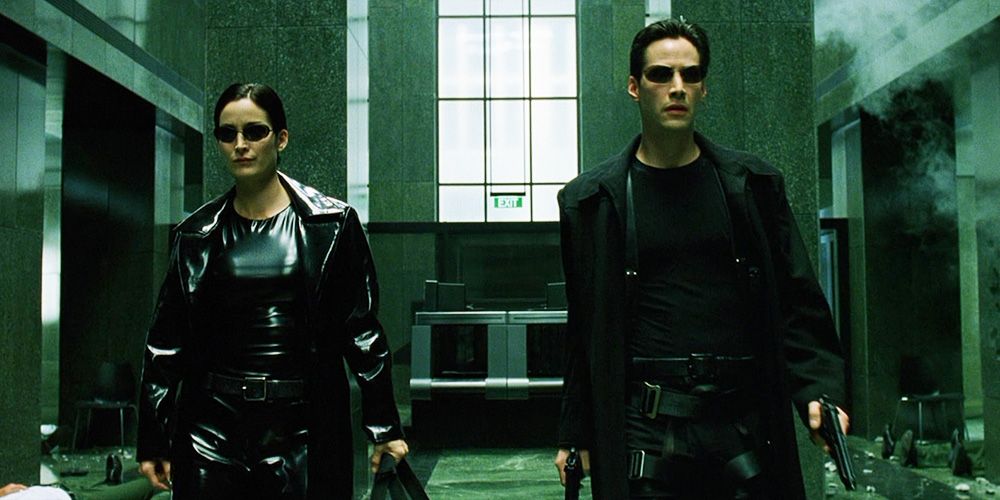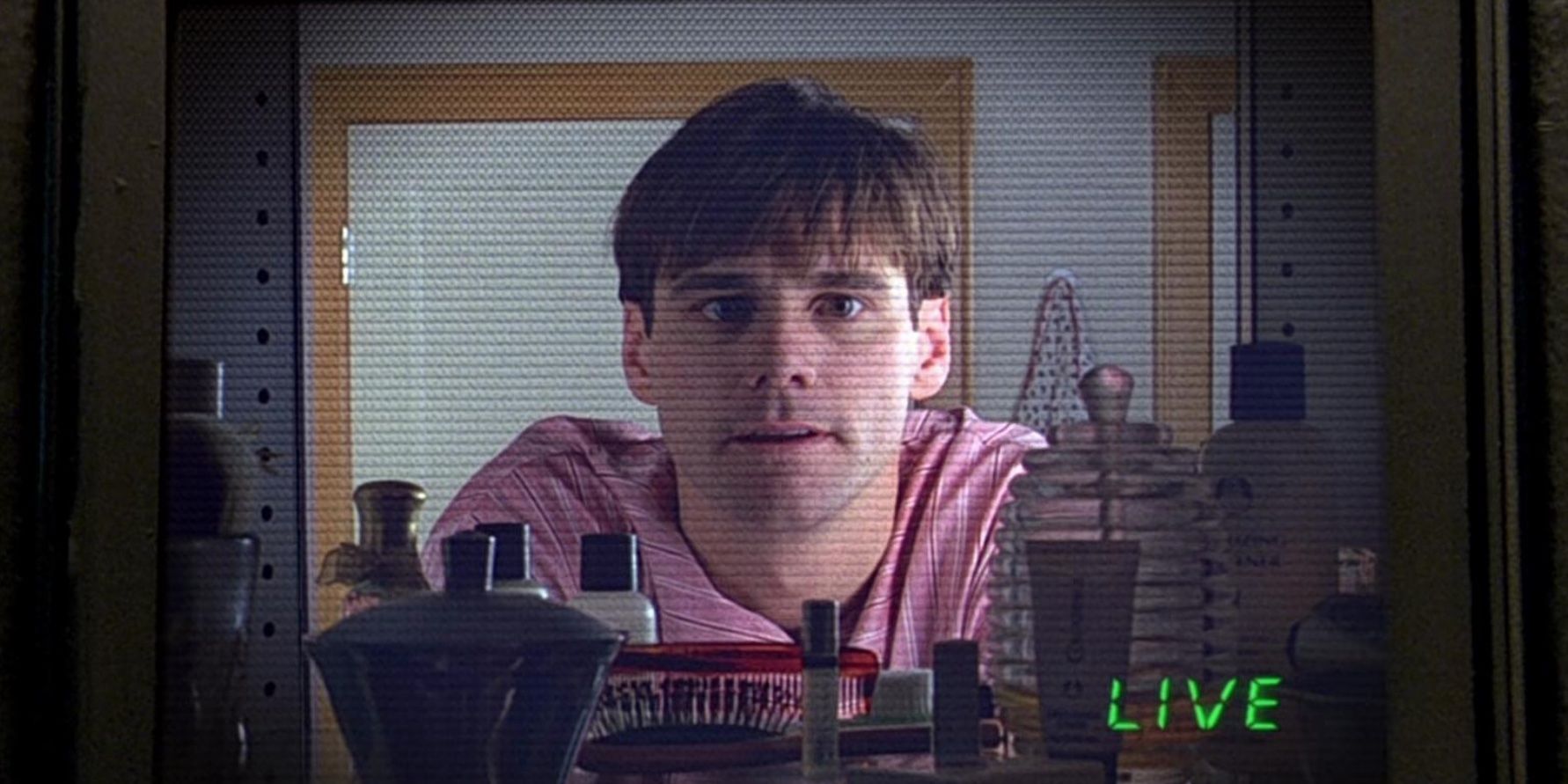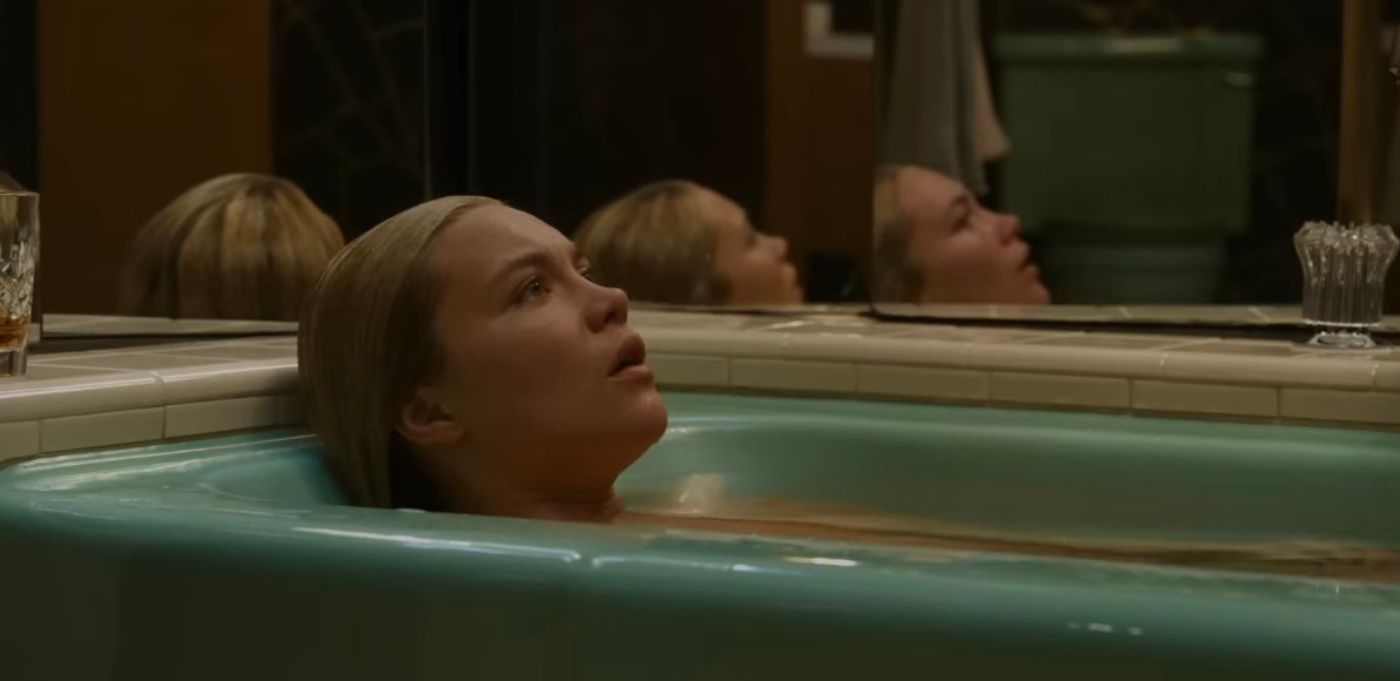Editor's Note: The following contains spoilers for Don't Worry Darling.It is clear from the trailers for Don't Worry Darling that something is not quite right with the idyllic world Alice (Florence Pugh) lives in. She lives as a stay-at-home wife, spending her days lounging with her friends, and has a loving husband who comes home to her every day, ready for dinner and.. As the film itself goes on, it is revealed that Alice's world is something akin to a living nightmare: a world entirely constructed, that she had no choice in being in. When promoting the film, director Olivia Wilde cited multiple inspirations for the script including two late 90s classics: The Matrix and The Truman Show. The connections are great choices, both being films about a character discovering that life is not what they thought but a simulation (The Matrix) or a carefully constructed television program (The Truman Show). Both films use this conceit to explore ideas of reality, free will, and the meaning of life and remain classics to this day. Don't Worry Darling failed to learn a key element from these films: the character (and by proxy, the audience) must learn this twist early, otherwise the film will suffer under the build-up to its reveal, with the ideas behind it becoming secondary.
The Matrix Reveals Its Twist Early On
One of the most memorable scenes in The Matrix is Morpheus (Laurence Fishburne) offering Thomas Anderson/Neo (Keanu Reeves) the choice between the red pill and the blue pill. One will put him to sleep, and he will wake up in his normal world and their meeting will have been just a dream. The other will take his feelings of doubt and confusion further "down the rabbit hole" and reveal the truth of his world (that it's all a simulation programmed by machines). This scene leads to the most important sequence in the movie: Neo learning about the Matrix. While some critics may blast this sequence for dumping a lot of lore and information all at once, it is precisely what the audience needs. Up until this point, everything has been kept vague about what's going on. Why is this woman from that first action scene now in the nightclub? What was with that phone call in the office? How did Agent Smith make Neo's mouth disappear? The Wachowski Sisters are very careful with their storytelling, they throw a lot at the audience but know just when to explain what's really going on. It comes early in the film which allows the rest of the plot to focus on the action and most importantly: ask whether he should have taken the other pill.
The Truman Show Hides No Secrets From Its Audience
The feat pulled off by The Truman Show is as astonishing today as it was upon its release in 1998. Unlike The Matrix and Don't Worry Darling, this leads with its reveal. From the start of the movie, the audience is clued in on the fact that Truman Burbank (Jim Carrey) is living in a TV Show. Within the first ten minutes, there are direct addresses from fans of the show and its creator, Christof (Ed Harris). There is a strange focus on particular products that feels commercial and a light literally falls from the sky (only to be explained as an airplane part moments later on the radio.) Director Peter Weir and screenwriter Andrew Niccol carefully dull out the information piece by piece, trusting the audience to follow along, for as long as they can until a film-within-the-film documentary answers all the logistical questions (whether the audience was wondering them or not). It is a risky choice but it pays off beautifully. Allowing the audience in on the set makes Truman's plight one they can empathize with, rather than be confounded by. In the documentary, Christof isn't explaining what is going on, but rather how he and the production team have been able to pull this off. It is the difference between a movie tricking the audience versus a movie taking an audience for a ride.
Don't Worry Darling Prioritize Suspense Over Messaging
About two-thirds through Don't Worry Darling, the audience is shown that Alice is not a housewife in the 50s, but actually, a surgeon in modern times who is drugged by her boyfriend Jack (Harry Styles) and forced into this virtual world: The Victory Project. Here, the men go off to work while the women are left to clean the house, watch the kids, socialize with one another, and of course, prepare dinner when their husbands get home. It has the potential to be a provocative idea that explores real-life issues, be it men having a dominant role over women in all aspects of life, the trait of toxic masculinity that makes men believe they have to be the providers, and maybe most menacingly, the question of is keeping women down going to make America great again? While the movie is interested in these themes, they don't seem to be the main concern.
The movie is structured as a thriller and a mystery. Alice spends most of the movie observing strange occurrences and goes in circles trying to figure out what is going on. Dramatically, this makes the tension of the movie about trying to answer the questions with Alice instead of interrogating why she is in the situation at all. When the truth is revealed it leaves a lot of distracting questions about the logic of the set-up. How does one apply for The Victory Project? Does Jack now work as a programmer when not plugged in as payment for him and Alice to live there? What is the real-world reaction to The Victory Project? Does Alice's family know where she is? It's not that a movie needs to spell out everything it's saying and leave nothing to interpretation, but by this point in the movie, the investment should be with the character and their journey, not with the logistics of the plot.
Don't Worry Darling's Plot Would Have Benefitted From Explaining Things More
Exposition in a movie, like any ingredient in a meal, has to be properly portioned. Often the truism of "starting a movie as late as possible and ending it as early as possible" is the correct approach. But when dealing with something as complex as an entire virtual world a character is trapped in, exposition might be needed. When dealt with in a careful and precise manner, as seen in The Matrix or The Truman Show, laying it out for the audience early does not slow the movie down, but instead enhances their understanding and creates a more effective ending. Whether it should have been revealed halfway through or at the start of the movie, relaying the information about what's really going on in Don't Worry Darling to the audience would have helped to make the experience more about the themes over a suspense ride with a lackluster payoff.





